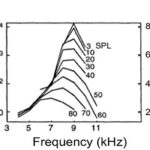Navigating the world of first cars for teenagers can be a daunting task for any parent. I frequently receive calls on my radio show, CarPro Radio Show, from parents seeking advice on this very topic. It’s a conversation I always welcome, recognizing that a teenager’s first car is often the starting point for a lifetime of car ownership and driving habits.
Recently, a caller shared a common scenario: a son wanting a pickup truck as his first vehicle. While pickups have their appeal, budget constraints were a major factor for this family. During the call, I spoke directly to the teenager, explaining the current market dynamics where trucks and SUVs often come with higher price tags and potentially more mileage compared to passenger cars. The young man, to his credit, grasped the logic. This situation, like many others, highlights the importance of guiding teenagers towards practical and responsible first car choices.
However, not all parents approach this with the same mindset. I often encounter parents determined to fulfill their child’s every automotive desire, regardless of practicality or budget. This can manifest in requests for high-horsepower vehicles, sleek sports cars, or even, on occasion, extravagant exotic cars as a “Kid Car”.
This article takes a slightly different approach from my usual fact-based columns. Consider this my experienced opinion, drawn from years in the automotive industry and personal experiences.
My own first car was a far cry from a dream machine. It was a 1967 Chevy Malibu, equipped with a basic 3-speed manual transmission. My father purchased it for a modest $450, handed me the title, and declared, “It’s yours to do with as you wish.” The underlying message was clear: this was my starting point. Any upgrades or changes were my responsibility.
Years later, when my son (may he rest in peace) turned sixteen, I owned a car dealership. His friends naturally assumed he’d have free reign to choose any vehicle from the lot. Instead, his first car was a nine-year-old Ford F-150 extended cab pickup. While older, it was in excellent condition and he took immense pride in owning it.
The point wasn’t about denying him a newer vehicle due to cost. It was about instilling a vital life lesson: desires aren’t always instantly gratified. A parent’s financial status shouldn’t dictate an extravagant first car for their kid. In my view, the first car experience should teach children that truly desirable things are earned.
A “kid car” shouldn’t be a teenager’s ultimate dream car. It should be a stepping stone, a tool to learn responsibility and pave the way for achieving those dream cars later in life through dedication and hard work. Teenagers who are handed everything often miss a crucial life lesson: the world outside parental support requires effort and perseverance.
I’ve observed too many young adults who exhibit a sense of entitlement, stemming from a childhood where every want was immediately fulfilled. Parents who believe showering their children with expensive gifts equates to love are inadvertently setting them up for disappointment and failure in the long run. True love involves teaching children the value of effort, that achievements are earned, not given.
The first car, the “kid car,” offers a perfect opportunity to demonstrate this principle. Regardless of a family’s financial standing, conveying the message that dream cars are attainable through personal effort, perhaps much later in life, fosters a stronger sense of accomplishment and pride in young adults. Parents who consistently provide everything their children desire often deprive them of this invaluable life lesson.
 Choosing a Responsible 'Kid Car' for Teen Drivers: Parent's Guide
Choosing a Responsible 'Kid Car' for Teen Drivers: Parent's Guide
Photo Credit: antoniodiaz/Shutterstock.com.


